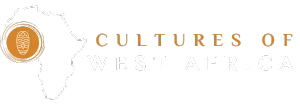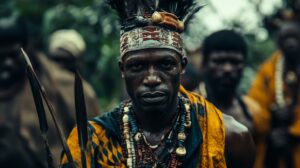
Intellectual production in English and Yoruba languages showcases significant cultural and academic contrasts. These differences manifest in language use, epistemology, and educational systems.
By examining debates, formats, and themes, we gain insights into how each tradition shapes and preserves knowledge.
This article explores the distinctions in English vs. Yoruba intellectual production, shedding light on the broader implications for cultural preservation and academic recognition. Comprehending these differences helps us appreciate the diversity of intellectual traditions and underscores the importance of linguistic and cultural contexts. This exploration will provide a comprehensive look at the unique strengths and contributions of both traditions.
Language and Expression
Yoruba is a western African language spoken in Nigeria, Ghana, Benin Republic, and parts of Togo and Sierra Leone. There are about 20 million native speakers. Yoruba is considered to be one of the four official languages of Nigeria.
It is intellectual production is deeply rooted in oral traditions, including storytelling, proverbs, and poetry. The famous Yoruba proverb “A kii f’owo kan t’aba mọ ti ṣ’egun ori; a kii f’ori jọn ọwọ kan” (You do not use one hand to lift a heavy load; you do not eat with one hand) reflects the rich symbolic nature of Yoruba wisdom. These oral traditions ensure that cultural narratives are preserved and transmitted through generations, maintaining their relevance and vibrancy.
Toyin Falola encapsulates this well, stating, “The Yoruba intellectual tradition, rich in oral literature, proverbs, and poetry, weaves together the spiritual, ethical, and empirical into a holistic tapestry of knowledge.”
On the other hand, English intellectual production is more formal and structured, prioritizing written over oral traditions. Written documentation in English intellectualism emphasizes precision, clarity, and individualism. For example, the works of William Shakespeare, with their precise language and deep exploration of human nature, exemplify the focus on written records and individual expression. This focus on written documentation supports extensive literary and academic traditions, allowing ideas to be widely disseminated and preserved for posterity.
As Chinua Achebe, who was Africa’s best-known novelist from eastern Nigeria and the founding father of African fiction, noted, “While the English intellectual tradition thrives on written documentation, it often misses the vibrant immediacy and communal essence of oral traditions found in cultures like the Yoruba.”
Sound System
The Yoruba language uses a special sound system to make lots of different words. This system has three main parts: consonants, vowels, and tones (Lawal 2004:454). Some sounds in Yoruba are the same as in other languages, but some are unique and not found in English.
Yoruba has 19 basic consonants and 12 vowel sounds. It’s a tonal language, which means it uses different pitch patterns to change the meaning of words. The number of consonants in languages can range from 6 to 95, with the average being 23. Yoruba has fewer consonants than average, with 19. The number of vowels in languages can range from 3 to 46, with the average being 5 (Malhotra 2016a). Yoruba has more vowel sounds than average, with 12.
Formats and Media
Yoruba intellectual production frequently includes oral performances, festivals, and community discussions. These formats are essential for maintaining and transmitting cultural knowledge. For example, the Egungun festival, which honors ancestral spirits, is a vibrant manifestation of Yoruba oral traditions and communal knowledge sharing. Written works in Yoruba are often transcriptions of oral traditions, preserving the richness of the spoken word in written form. This approach underscores the communal nature of Yoruba intellectual activity, ensuring that knowledge is shared and celebrated collectively.
In English intellectual production, written formats such as journal articles, books, and formal reports dominate. The emphasis on peer-reviewed publications, such as those found in the journals of the Royal Society, ensures that new knowledge is rigorously evaluated and validated. This focus on written documentation facilitates the global dissemination of ideas, contributing to a broader academic dialogue. It also means that non-written forms of knowledge transmission, which are central to Yoruba intellectual traditions, are often undervalued.
English vs. Yoruba – Epistemological Differences
| Yoruba Epistemology | English Epistemology |
|---|---|
|
|
English vs. Yoruba – Content and Themes
Yoruba intellectual production often centers on themes of community, morality, spirituality, and historical narratives. These themes are intimately linked to everyday life and communal experiences, reflecting the lived realities of the Yoruba people. The focus on morality and spirituality highlights the ethical dimensions of Yoruba intellectualism, where knowledge serves not just to inform but also to guide the ethical living.
Ngũgĩ wa Thiong’o aptly remarked, “Language carries culture, and culture carries, particularly through orature and literature, the entire body of values by which we come to perceive ourselves and our place in the world.”
In contrast, English intellectual production covers a wide range of specialized fields of study, with a strong emphasis on theoretical frameworks, research methodologies, and data analysis. This specialization supports the development of deep expertise within specific areas, contributing to significant advancements in various academic disciplines. This approach can sometimes result in a disconnection from the broader cultural and ethical contexts that are integral to Yoruba intellectual production.
Education and Training
Education in the Yoruba intellectual tradition is characterized by apprenticeship and communal learning. Elders and knowledgeable community members play a crucial role in this educational process, ensuring that knowledge is passed down through generations. This model emphasizes practical learning and direct engagement with cultural practices, providing a holistic education that integrates intellectual, spiritual, and ethical dimensions.
The English intellectual tradition is dominated by formal education systems with structured curricula and standardized assessments. Higher education institutions play a central role in academic production, supporting the development of specialized knowledge and skills. While this formalized approach fosters deep expertise, it can sometimes overlook the holistic and communal aspects of education that are central to Yoruba intellectual traditions.
Impact and Recognition
Yoruba intellectual contributions are highly valued within their communities but may not always receive global recognition. Efforts are underway to document and share these traditions more widely, ensuring that the rich intellectual heritage of the Yoruba people is preserved and appreciated globally. This process highlights the importance of recognizing and valuing diverse intellectual traditions.
In contrast, academic works in English often have a broader global reach and recognition. This is facilitated by international journals, conferences, and academic networks that support the dissemination of English-language scholarship. The global recognition of English intellectual production underscores the influence of language and cultural context on the visibility and impact of academic work.
Preservation and Innovation
Yoruba intellectual production places a strong emphasis on preserving traditional knowledge and practices. Innovation often involves adapting these traditions to contemporary contexts, ensuring their relevance and vibrancy. This approach highlights the dynamic nature of Yoruba intellectualism, where tradition and modernity are seen as interconnected rather than opposing forces.
In English intellectual production, there is a continuous drive for innovation and the development of new theories and technologies. Preservation of knowledge is also important but often occurs through documentation and archiving. This approach supports the creation of new knowledge while ensuring that existing knowledge is systematically recorded and accessible.
Polygamy Debate

The polygamy debate in West Africa is a prime example of how intellectual debates transcend language and media. This debate, which explored whether Christians could practice polygamy, continued across different media (oral and written), languages (English and Yoruba), and social contexts.
Reverend Samuel Ajayi Crowther, a prominent Yoruba clergyman, and the first African Anglican bishop, was involved in these debates, illustrating the intersection of English and Yoruba intellectual traditions. He noted:
“The intersection of English and Yoruba in intellectual production offers a unique perspective where language barriers dissolve, allowing for a richer, more inclusive dialogue.”
The debate illustrates the interconnected nature of Yoruba and English intellectual traditions.
Authors writing in both languages contributed to the polygamy debate, with discussions appearing in newspapers, pamphlets, and public forums. The debate highlights how intellectual production in Yoruba and English is not isolated but part of a broader intellectual network. This network allows ideas to flow across linguistic and cultural boundaries, enriching the intellectual landscape.
FAQs
What are the main differences between English and Yoruba intellectual production?
English intellectual production focuses on written documentation and specialization, while Yoruba emphasizes oral traditions and holistic knowledge.
How do themes in Yoruba and English intellectual production differ?
Yoruba themes often revolve around community, morality, and spirituality, whereas English themes focus on specialized academic fields.
What role does education play in these intellectual traditions?
Yoruba education involves apprenticeship and communal learning, while English intellectual traditions rely on formal education systems with structured curricula.
How is the preservation of knowledge approached in these traditions?
Yoruba intellectual production emphasizes preserving traditional knowledge through oral and communal practices, while English traditions use documentation and archiving.
Conclusion
The cultural and academic differences between English and Yoruba intellectual production are profound and multifaceted. While English intellectual production emphasizes written documentation, specialization, and global dissemination, Yoruba intellectualism values oral traditions, holistic knowledge, and communal learning. Both traditions have unique strengths and contribute significantly to the global intellectual landscape.
Understanding these differences enriches our appreciation of diverse intellectual traditions and underscores the need for inclusive approaches to knowledge production and dissemination. By valuing and integrating different intellectual traditions, we can create a more comprehensive and nuanced understanding of the world.
Sources
- Lawal, Nike S; Sadiku, Matthew N.O; and Dopamu, Ade. 2004. Understanding Yoruba Life and Culture. Trenton, NJ: Africa World Press Inc.
- Malhotra, Shiti. 2016d. Linguistic analysis: Syntax. Lecture: Northeastern University.








